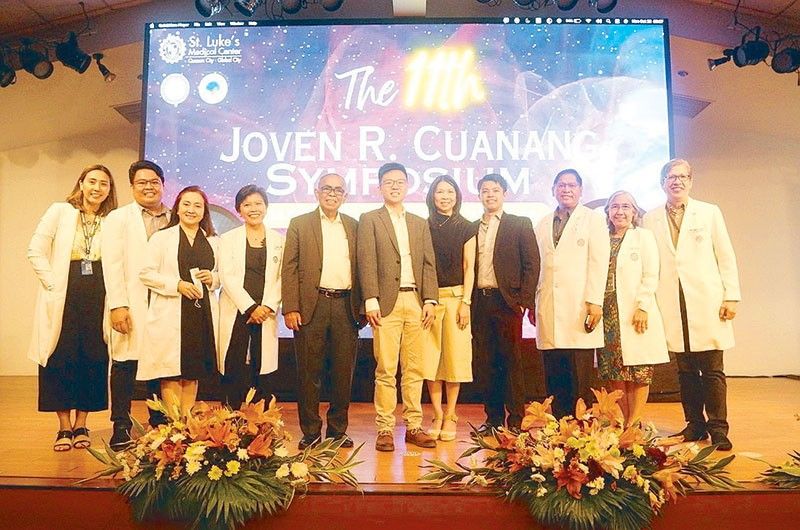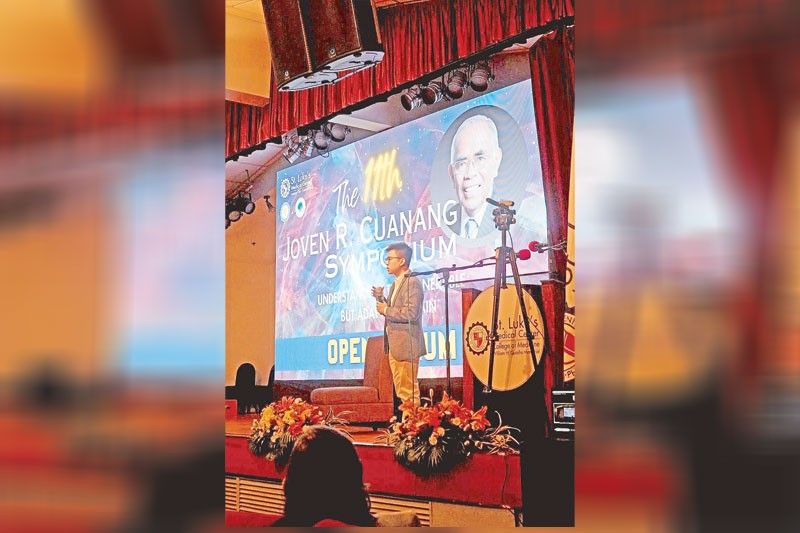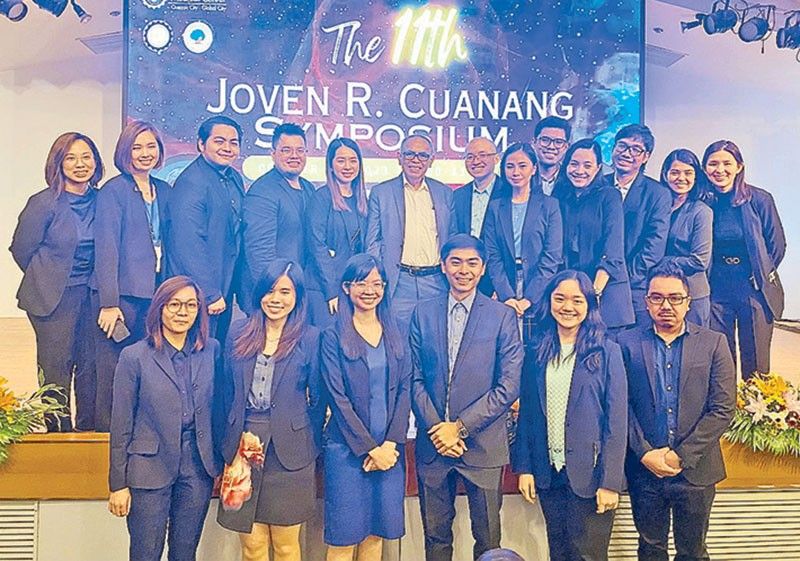Young in mind, old at heart

The youth is the hope of the future. — Dr. Jose Rizal
It is not often that we come upon individuals across generations that truly move us.
How do they move us? Not through tears but through sheer amazement. This was the exact sentiment that I had while attending the 11th edition of the Dr. Joven R. Cuanang Symposium held on Oct. 23 at the St. Luke’s College of Medicine Auditorium.
The symposium was started 11 years ago by Dr. Jacqueline Dominguez, one of the foremost and leading experts in the field of neurodegenerative diseases, with the intent of showcasing Filipino neuroscientists, to give honor to the man who had embodied the true spirit of being a Filipino neuroscientist from which the symposium takes its namesake.
The speaker for this year’s symposium, Dr. Janssen Kotah, embodies “young in mind, old at heart,” but on a whole different level.
Young in mind, Dr. Kotah is 28 years old and he had already obtained his PhD in Neurosciences at University of Amsterdam. He obtained his MS in Medical Neurosciences at Vrije Universiteit Amsterdam and MS in Neurosciences Charité – Universitätsmedizin Berlin through the Erasmus Mundus Neurasmus in the European Union. He is the youngest speaker invited to the symposium (He just fulfilled a dream of mine) and he gave everyone a lecture on “Understanding the Vulnerable But Adaptable Brain,” the ideal starter to celebrate the theme of this year’s Institute for Neurosciences Week, which revolved around neuroplasticity, or simply the brain’s amazing ability for regeneration and recovery.
Dr. Kotah gave us a plethora of his past, present and future research works that use animal models to study the effects of early life stress and why this can lead to a higher chance of developing dementia.
Simply put, it’s a collective body of work that he and his team have completed in order to try and explain what happens to all of us when we get exposed to these stresses and how it affects our brain and body as we age. Think of it as an engineer figuring out what parts of a machine should be taken care of in order for it to not go haywire.

Similar to the machine, when we are exposed to the extremes of many different types of early life stresses (and mind you, there are a lot of things that people stress about, including the unnecessary ones), we place ourselves at risk for developing numerous diseases early on, with dementia being only one of the examples.
I get what you may be thinking right now. There is the argument to be made: “Should I just stay stress-free for my entire life?”
But that is beside the point. The fact is, there are things we can change and certain things that we cannot change. What we cannot change is our nature as human beings. What we can change is our nurture — meaning how we care for each other as living, breathing, thinking and feeling human beings.
No one deserves to be exposed to the different forms of child abuse and neglect that have indirectly led to the loss of lives in the Philippines context.
Dr. Cuanang described our dire situation as he saw children on the streets loitering around and not in school. Case in point: an impoverished life affects us negatively in all aspects. But then again, there are things or circumstances that will test us and build our resiliency, endowing us with protective factors against future threats.
However, I digress. The point really is that a nurturing environment provides us the foundation that we need in order to succeed later on in life. The definition of success in Dr. Kotah’s talk being that we don’t develop the brain and bodily changes that increase our risk for diseases in the future. And that’s what’s most important — a healthy mind and a healthy body lead to a healthy life and a bright future. Believe me, the future became so much brighter for me after witnessing and hearing his lecture during that morning.

Now, why old at heart? It’s quite simple. If you close your eyes — and I did throughout some parts of his lecture intentionally — it’s as if you were listening to an individual who had so much knowledge and wisdom to share, the likes of which I’ve only rarely encountered in a handful of individuals in my lifetime, most of whom had already come of age.
Dr. Kotah is the definition of a young man with an old soul. What an incredibly learned individual. Mind you, he was seamless and smooth in his transitions to the more technical aspects of his research works. I mean this in the most respectful way possible when I state that it’s as if he has accumulated the wisdom befitting that of an elderly individual but he remains humble, grounded, principled and ever passionate and curious in his field as if viewing the world as a learning opportunity just waiting to be discovered, similar to a child who is starting to learn how to walk.
The Philippines should count itself fortunate to have such an individual. Indeed, greatest is the teacher who can inspire.
I referenced Dr. Jose Rizal, our national hero, in the opening of this article because the Filipino youth of today face a lot of challenges hampering them from reaching their full potential. I look around and I likewise see what Dr. Cuanang saw in the streets.
I also saw what he saw on that beautiful morning of Oct. 23 at the St.
Luke’s College of Medicine Auditorium. You guessed it: we (and hundreds of others) saw what a Filipino neuroscientist is capable of if given the resources and an environment conducive to his growth and development. We saw what happens when talent meets hard work and, in Dr. Kotah’s words, “luck and lot of opportunities.”
Truly a humble man he is and I wish for everyone to replicate not his collective body of work (it’s a lot!) but instead to replicate his principles and passion for what he loves to do.
I truly believe that if we do this, all of us will truly be as what Dr. Jose Rizal had famously envisioned, “the hope of the future,” young in mind but old at heart.
* * *
The author, Dr. Jon Stewart Hao Dy, is a fourth year Neurology resident at St. Luke’s Medical CenterInstitute for Neurosciences, where he serves as the current chief resident. He is also the inaugural president of the Philippine Neurological Association Junior Member’s Association.



















